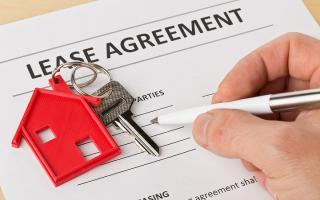
As of 1 May 2020, restrictions on the national lockdown were slightly lifted allowing for certain sectors to return to work. However, a lot of people involved in lease agreements are still concerned with being unable to pay the monthly rental amount and fear that they might be evicted. These concerns are not just limited to residential leases (people renting a home for private use), but also extends to commercial leases (businesses renting property as offices).
Lease agreements are formed when one person (“landlord”) agrees to lease his/her property to another person (“tenant”) for an agreed period of time. In return, the tenant is obligated to pay a rental amount to the landlord for the use of the property. If a tenant defaults in paying the rental amount, s/he is in breach of the lease agreement. Generally, the landlord may claim for the outstanding rent from the tenant and if the rent is still not paid, the landlord may approach the court for an order to evict the tenant. It is important to note that a tenant cannot be evicted without a court order.
Can I just stop paying my rental amount during the national disaster?
As long as the lease agreement is in existence, a tenant must comply and pay the rental amounts. However, if it is not possible for the tenant to pay his/her rent in full or at all, the first step would be to go and read the lease agreement. There might be a clause giving clarity on what should happen in circumstances similar to what we are being faced with now.
One of these clauses might be a force majeure clause dealing with circumstances of a superior nature that cannot be controlled, such as earthquakes, wars and so on. If a lease agreement has this type of clause, it must be carefully examined to establish exactly what is considered as force majeure and whether it will apply to the current circumstances. This clause might also stipulate that the tenant does not have to pay rent if the tenant does not occupy the property during the force majeure events. This means that it might only be applicable in commercial lease agreements where businesses were unable to occupy the property.
If there are no clauses in the lease agreement that can assist the tenant during this period, s/he can approach the landlord to try and negotiate, in good faith, alternative arrangements to avoid legal proceedings being taken against them.
There are currently no relief measures available for residential lease agreements. In respect of commercial lease agreements, the Property Industry Group announced the Tenant Assistance Relief Package (“TARP”) that aims to provide relief to their commercial tenants through allocating rental discounts either in full or partial wavier of payment of rent. The outstanding rent will then be recovered in a period of six to nine months. Tenants applying for this relief will be assessed on case to case bases.
Can I be evicted during the national disaster?
The government released the latest Regulations on 29 April 2020, which provides that courts are allowed to grant eviction orders. However, the eviction order will be suspended until the end of the current Level 4 period, unless the court does not deem it to be justified.
In light of the above, it is clear that a tenant is still obligated to pay the rental amount during the lockdown and Level 4 alert period, unless the lease agreement stipulates otherwise. Tenants may approach their landlords about their financial challenges of paying rent and attempt to come to some alternative arrangement. Every matter will be different as it all depends on the relevant circumstances and it is advisable to get legal advice before approaching the landlord.
Date updated: 5 May 2020
Are you having landlord and tenant issues? Contact us for legal counselling today and let us help you.
Legal content disclaimer
The information contained on this website is aimed at providing members of the public with guidance on the law in South Africa. This information has not been provided to meet the individual requirements of a specific person and LegalWise insists that legal advice be obtained to address a person’s unique circumstances. It is important to remember that the law is constantly changing and although LegalWise strives to keep the information up to date and of high quality, it cannot be guaranteed that the information will be updated and/or be without errors or omissions. As a result, LegalWise, its employees, independent contractors, associates or third parties will under no circumstances accept liability or be held liable, for any innocent or negligent actions or omissions by LegalWise, which may result in any harm or liability flowing from the use of or the inability to use the information provided.